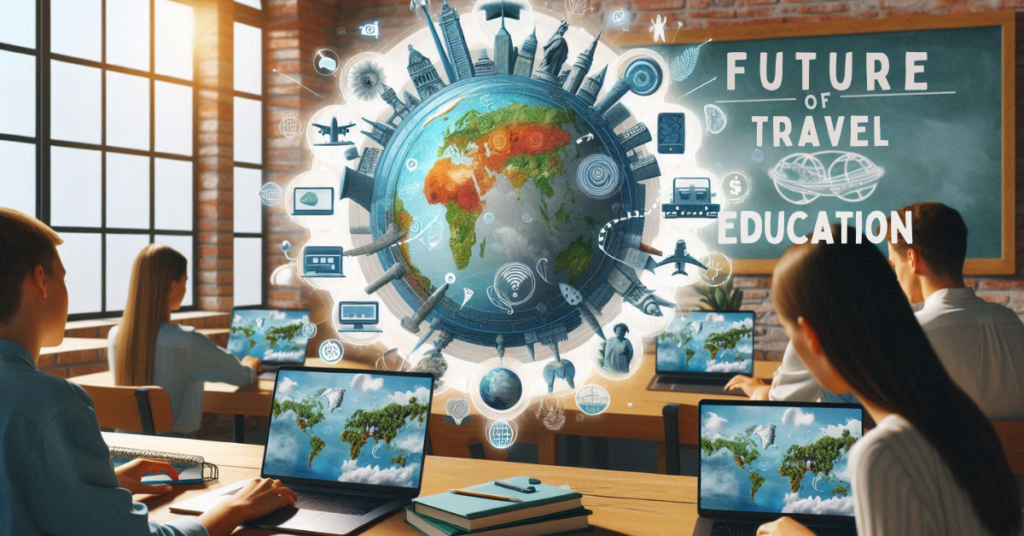Explore, Learn, Grow: A Deep Dive Into Travel Education
Consider immersing yourself in the past while hiking over a couple of ancient ruins, studying the Amazon rainforest, or moving to a foreign country to converse with native speakers to improve your language skills. Travel education is an exhilarating adventure and in-depth knowledge of the subject. That is its essence. Learning about and dealing with various cultures is vital in our connected world. Traveling education is a particular method of development. It promotes cultural enrichment and academic competencies. It allows individuals to gain knowledge not through books but from the globe.
What is Travel Education?
Travel education combines traditional learning with travel experiences. Education is different from conventional education. It often happens in a classroom. The education immerses students in diverse environments, cultural practices, and human interactions. Travel roots in education, tracing back to Europe’s Grand Tour by aristocrats. Today, travel education has evolved. It now includes many programs. These are study abroad, cultural exchanges, educational tours, and service-learning trips.
The Importance of Experiential Learning
Experiential learning is learning by doing. It’s critical to travel education. Traditional education often involves passive learning, like listening to lectures or reading textbooks. In contrast, experiential learning requires active participation. You absorb knowledge through experience while exploring new places. Travel forces you out of your nicety zone. It requires quick thinking, adaptability, and problem-solving. You face this in new cities, unfamiliar foods, and foreign languages. These real-world experiences cement knowledge better than conventional methods alone.
Also Read: How to Develop K-12 Entrepreneurship Programs: A Practical Guide
Benefits of Travel Education
Travel education offers a wealth of benefits that go beyond academic learning. It’s about developing a global perspective and growing as an individual.
Cultural Awareness
A significant benefit of travel education is its cultural awareness. Different cultures make you look at the world through a new lens. You acquire knowledge regarding the customs, traditions, and values of tribes residing in various parts of the globe. This understanding is essential in today’s globalized earth. Inter/cross-cultural communication, which includes mutual respect and understanding, has become a must-have skill in every aspect of life.
Personal Growth
Travel education is also a powerful tool for personal growth. Traveling, especially solo, builds independence and confidence. You learn to navigate new places, manage resources, and face challenges. It builds self-reliance. Additionally, travel teaches resilience. Only some trips go as planned. Adapting to change is a valuable skill, and travel helps hone it.
Academic and Career Development
For students and professionals, travel education can enhance academic and career prospects. For example, being in a place where people speak a new language daily can make learning easier. Additionally, travel provides opportunities to expand your professional network. Your associations can open entrances to new possibilities. Whether you’re at a conference, studying abroad, or volunteering, this is true.
Types of Travel Education Programs
Various ways to engage in travel education offer different experiences and benefits.
Study Abroad Programs
Study abroad programs are among the most popular forms of travel education. These programs allow students to live and study in a foreign country for a semester or a year. The benefits are many. Students gain academic credit and a new cultural experience. Spain, Italy, and Japan are popular travel spots. They offer rich cultures and diverse educational options.
Service Learning and Volunteer Travel
Service learning is about teaching and serving the community at the same time. Assistance partners do volunteer work, reflect on their experiences, and gain deep insight into problems in the areas they are serving. They deconstruct schools in rural Africa and give English lessons in Southeast Asia. They have a significant impact and give participants a deep understanding of global issues.
Educational Tours and Excursions

Educational tours offer a fantastic option for those looking for shorter-term experiences. These trips, usually organized by schools, have specific themes. They may focus on history, art, or ecology. For example, a tour might take students to historic European sites or on an African safari. It would provide a hands-on, unforgettable learning experience.
The Role of Technology in Travel Education
Technology has transformed travel education, making it more accessible and interactive. Virtual travel experiences let students explore distant lands from home. Online tours can supplement traditional travel education. They are handy for those who cannot travel due to cost or logistics. Also, online courses and global classrooms connect students worldwide. They foster international collaboration and learning. A mix of tech and travel creates a better education. It’s more prosperous and more diverse.
Challenges of Travel Education
Travel education has clear benefits. But there are even challenges to believe.
Financial Barriers
The cost of travel can be prohibitive, especially for students. Yet, many organizations offer scholarships and financial aid to help offset expenses. Develop a plan to make travel education accessible by finding solutions.
Safety Concerns
Safety is another primary concern, particularly when traveling to unfamiliar or unstable regions. It is crucial to plan, stay informed of travel advisories, and take precautions to ensure a safe trip.
Cultural Sensitivity
Traveling to another country requires a high level of cultural sensitivity. Understanding and respecting local customs, traditions, and social norms are essential. It helps you fit in and be a positive, respectful presence.
Case Studies of Successful Travel Education Programs
Many travel education programs result in life-changing experiences. For example, the Fulbright Program is a top study abroad initiative. It has enabled thousands of students to study and research abroad. It fosters mutual understanding between nations. Organizations like Global Citizen Year offer travel-based leadership programs.
How to Get Started with Travel Education
Suppose you want to learn about travel and research programs that match your interests and goals. Consider the destination, duration, and type of experience you’re looking for. After you choose a program, prepare. Learn about the destination. Understand the logistics. Set clear learning goals. While you travel, stay open to new experiences. Be proactive in your learning. It will help you make the most of your trip.
Read: How to Find Youth Entrepreneurship Resources
Travel Education for Different Age Groups
Travel education is for more than just college students. There are options for all ages.
Programs for Children and Teens
Educational tours and summer camps let young learners explore the world. They gain new perspectives.
Opportunities for College Students
Study abroad and service-learning programs are ideal for college students. They want to expand their academic and cultural horizons.
Adult and Lifelong Learning Through Travel
For adults, travel education can be a way to continue learning throughout life. There’s always something new to learn. Language immersion programs, cooking classes, and cultural exchanges can teach you.
The Future of Travel Education

The travel education landscape undergoes constant transformation. Emerging trends include sustainable travel programs. They emphasize eco-friendliness and ethical travel. Global events, like the COVID-19 pandemic, have changed travel education. There is now a greater interest in virtual experiences and domestic travel. The future of travel education will likely blend physical and virtual experiences. It will focus on sustainability and inclusivity.
Conclusion
Travel education is far more than perspective and place. The experience will change you and shift you in space in terms of the world and your position within it. It is the most unexplored way of education, learning, and cultivating ourselves. It’s for students, professionals, and lifelong learners. So be it; load your bags. Out of your comfort zone, you step. You will enter a realm of perpetual murals and paradigms where your imagination has no control.
For Information: How to Become a Travel Nurse: Your Step-by-Step Guide
